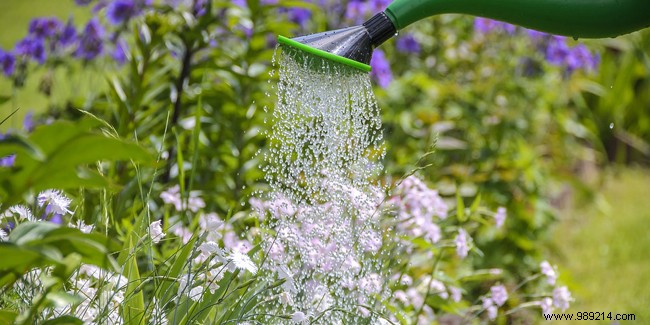
In summer, the garden needs to be particularly well supervised, especially with regard to the water needs of the plants. Watering can be a source of heavy water consumption. However, in addition to choosing Mediterranean-type plantations that consume less water, simple rules and good practices can save significant amounts of water when watering. More watering techniques are available on Binette &Jardin
The garden does not necessarily need to be watered regularly in summer. It all depends on the plants, each one having specific needs. To find out if it is necessary to water and therefore to save water, simply test the degree of humidity of the plants by pushing your fingers into the soil. If it is wet, no need to water. There is also no need to waste water by watering after a rain. Finally, take advantage of the cool summer evening to water and thus prevent evaporation.
In order not to consume too much water, the simple garden hose, the flow rate of which is not easily adjustable, should be avoided. Opt instead for a drip or microporous hose irrigation system. These systems make it possible to water directly and only the plants that need it while using the necessary quantity of water and thus avoiding waste.
A good way to save water is to collect rainwater, especially since it is very simple to install commercial rainwater collectors in your garden or to improvise with them. containers available at home.
It's easy to water less and save water by following a few simple gardening rules. Hoeing the soil well, for example, allows the water to infiltrate deep down to the roots of the plants. With this technique, watering is more efficient, there is less water loss in the end. Another tip:installing straw at the foot of the plantations keeps the soil moist and limits watering.
This mulch can be composed of pine bark, mowed grass or gravel. Installing water-holding granules that absorb moisture and gently return it to the plants is also a good way to use as little water as possible when watering. Always with the aim of saving water, it is recommended to dig basins at the foot of trees, shrubs or even fruit trees, especially when they are young, to retain water for irrigation.